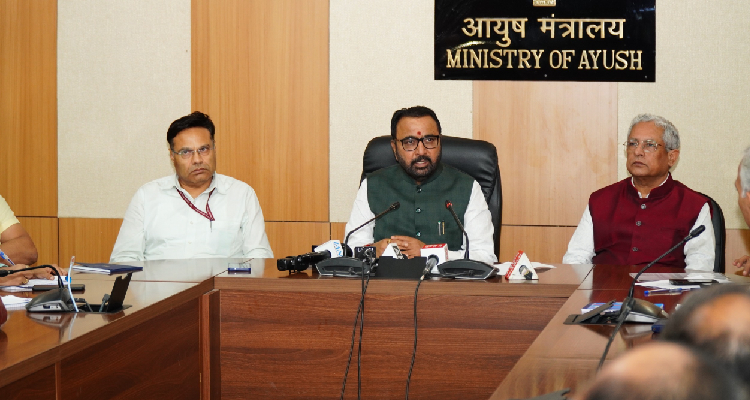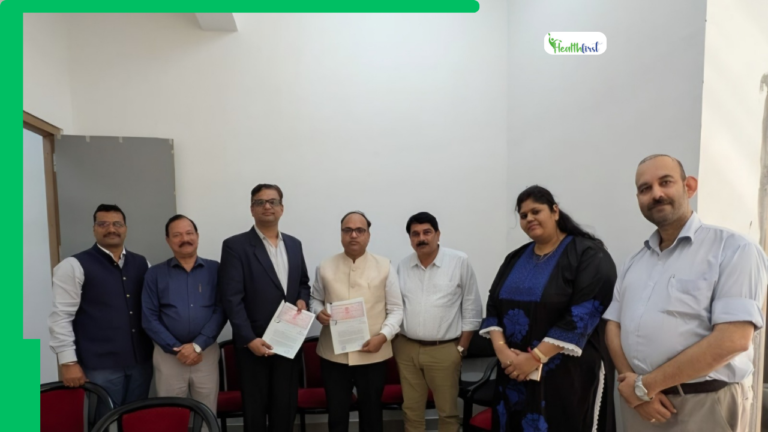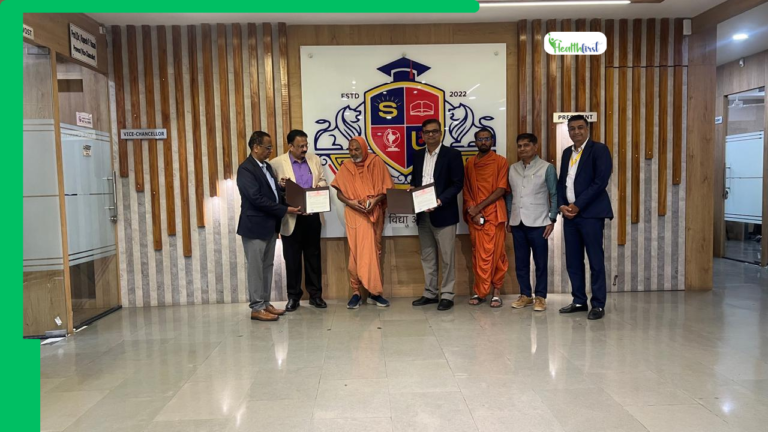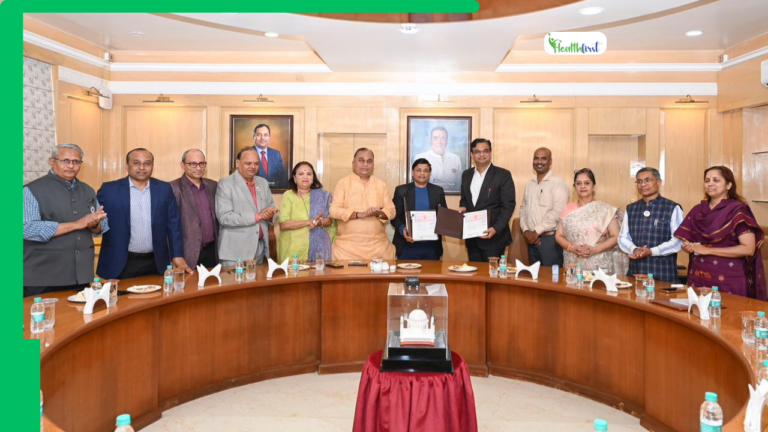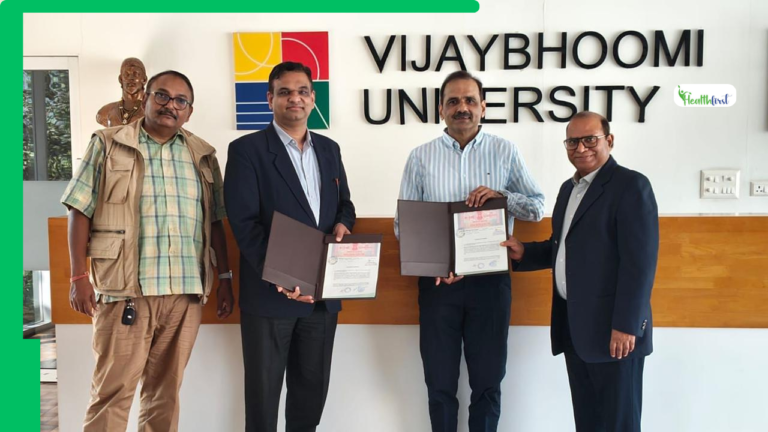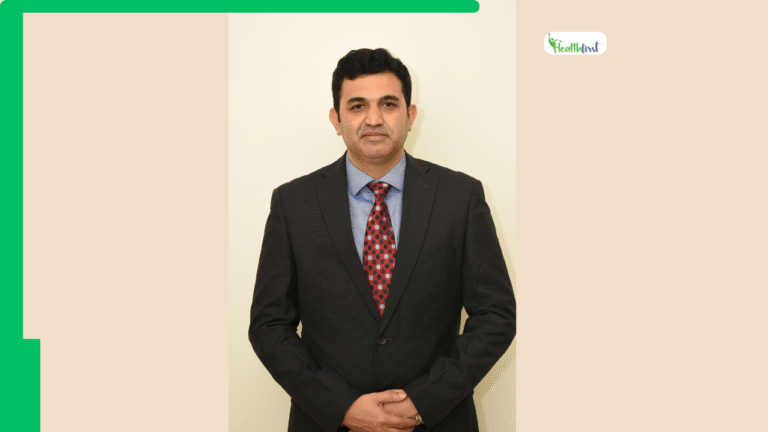The Union Minister of State for Ayush (Independent Charge), Prataprao Jadhav, announced that the National Exit Test (NExT) for Ayush will be enforced from the 2021-2022 academic batch onwards. This decision, made after extensive deliberations, marks a significant development in the standardization and assessment of clinical competencies in Ayush education. The announcement was made during a press conference held at the Ministry of Ayush, based on the recommendations of a committee established to address students’ concerns.
Implementation and Purpose of NExT for Ayush
The NExT exam, a mandatory examination for licensing and enrollment in the State or National Registers, will now be a part of the academic journey for students in the Ayurveda, Siddha, Unani, Homoeopathy, and Sowa-Rigpa systems. It is set to be conducted by both the National Commission for Indian System of Medicine (NCISM) and the National Commission for Homoeopathy (NCH). Under the provisions of the NCISM Act 2020 and NCH Act 2020, the NExT exam is intended to enhance and uphold the quality of education and healthcare in the Ayush field.
As per Minister Prataprao Jadhav, “The committee recommends that the NExT will be applied to students enrolled in the 2021-22 academic session under the NCISM and NCH Acts, 2020, removing any ambiguity in its implementation.” This recommendation, led by Dr. Sanjeev Sharma, was finalized after considering feedback from students and reviewing multiple suggestions about the NExT exam.
Key Features of the National Exit Test
The NExT exam is a structured, problem-based examination designed to assess a range of skills critical to the practice of Ayush systems. The test will evaluate:
- Clinical competency: Testing the ability to diagnose and manage various health conditions.
- Understanding of medical ethics: Emphasizing the importance of professional ethics and patient care.
- Medico-legal capabilities: Ensuring that graduates are equipped to handle complex legal situations within the medical field.
The test’s structure includes clinical case scenarios, images, and videos, providing a more practical, real-world assessment of the candidates. The test must be passed before a student can officially register with a State or National Registration Board, and students must complete a one-year internship before full registration.
Those who pass the NExT exam but have not completed their internship will only be eligible for registration after fulfilling this mandatory one-year internship requirement.
Student and Institutional Response
The announcement follows a series of discussions between student representatives and the Ayush Ministry. Students from the BAMS (Bachelor of Ayurvedic Medicine and Surgery) and BHMS (Bachelor of Homeopathic Medicine and Surgery) programs voiced their concerns about the implementation of NExT and were actively involved in shaping the final decision.
The introduction of the NExT exam aligns with efforts to ensure transparency and consistency in the licensing process for Ayush practitioners. The move is widely seen as a positive step to maintain high standards in Ayush education while ensuring that graduates are well-prepared for the healthcare challenges they may face in their careers.
New Campaign: “Desh Ka Prakriti Parikshan Abhiyan”
During the announcement, Minister Jadhav also introduced a new initiative, the “Desh Ka Prakriti Parikshan Abhiyan”, aimed at promoting the health and well-being of Indian citizens through the integration of Ayush systems into everyday healthcare.
Led by the Ministry of Ayush and NCISM, this campaign is expected to engage over 4.5 lakh participants nationwide, including:
- 1,35,000 undergraduate students
- 20,000 postgraduate students
- 18,000 educators
- 3 lakh practicing Ayush professionals
This national campaign seeks to generate public interest in Ayurveda and other traditional medical systems, contributing to public health and economic growth. Through this initiative, Ayush practitioners will offer services and increase public awareness about preventive healthcare, healthy living, and natural therapies.
Role of NCISM and NCH in NExT Implementation
Dr. Jayant Deopujari, Chairman of NCISM, and Dr. Anil Khurana, Chairman of NCH, were both present during the announcement, further underscoring the importance of the NExT exam for the Ayush community. Their respective organizations will play key roles in ensuring the smooth implementation and execution of the NExT exam, as well as in overseeing the Desh Ka Prakriti Parikshan Abhiyan campaign.
Both NCISM and NCH are committed to upholding the highest standards in Ayush education and ensuring that the graduates are well-equipped with the skills necessary to serve as competent healthcare providers. Their oversight of the NExT exam ensures it is both fair and rigorous, and reflective of real-world clinical conditions.
Impact of NExT on Ayush Education and Healthcare
The introduction of the NExT exam represents a paradigm shift in the training and certification of Ayush professionals. By mandating a comprehensive exam that tests not only academic knowledge but also practical clinical skills, the Ministry of Ayush aims to raise the quality of healthcare services provided by Ayush practitioners.
This move is expected to align Ayush education more closely with modern medical standards, making practitioners more competitive in the healthcare field while maintaining the core principles of traditional Indian medicine.
The 2021-2022 batch will be the first group to undertake the NExT exam, marking a historic milestone for Ayush education. This ensures that future generations of Ayurveda, Unani, Siddha, Homoeopathy, and Sowa-Rigpa practitioners are better equipped to serve their communities while upholding the highest standards of medical practice.

